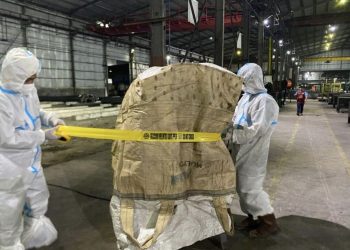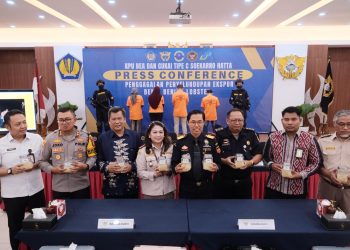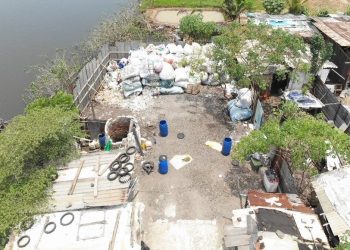Jakarta, Indonesia Sentinel — Indomie instant noodles have been recalled in Australia due to the absence of allergen warnings for milk and eggs on the product packaging. In addition to allergen concerns, food safety often includes monitoring radioactive contamination, so how’s the radioactive content in Indomie?
Previously, Food Standards Australia New Zealand (FSANZ) announced on its official website, to recall three indomie instant noodels variants: Indomie Mi Goreng Rendang Flavor, Indomie Chicken Onion Flavor (with egg), and Indomie Soto Mie Flavor.
The recall was issued after the product packaging label didn’t mention milk and egg on its ingredient as an allergen content. Allergens, such as milk and eggs, are substances that can trigger allergic reactions in sensitive individuals. Failure to properly disclose these allergens on food labels poses significant health risks for consumers with allergies or intolerances.
Aside from allergen concerns, radioactive contaminations which rarely noticed within food content, was also a concerning aspect for food safety. A study in 2015 conducted by Iraqi scientist Al-Hamidawi has examined Indomie noodles radioactive content using gamma-ray spectrometry.
The study, published in the Journal of Environmental Analytical Chemistry under the title “NORM in Instant Noodles (Indomie) Sold in Iraq,” analyzed 13 samples of instant noodles from five different brands available in Iraqi supermarkets. Four of the samples were Indomie noodles produced in Saudi Arabia, while one sample was Pop Mie produced in Indonesia.
Safety Threshold
The findings revealed that all 13 samples contained radionuclide levels below the safety threshold recommended by the Organization for Economic Co-Operation and Development (OECD). The average radionuclide levels ranged from 0.052 to 0.268, with Indomie samples falling within the mid-range.
Radionuclides are radioactive isotopes capable of emitting radiation in the form of particles or electromagnetic waves. In food products, these isotopes can accumulate naturally or through environmental contamination during processing.
Indofood Responds to Indomie Noodles Recall in Australia
Despite its as a natural occurrence, excessive radioactive contamination in food can increase the risk of cancer and other health issues. While also, prolonged exposure to food contaminated by radioactive exceeding the safety threshold could lead to serious health concerns.
The World Health Organization (WHO) states that radioactive iodine takes approximately eight days to reduce half its radioactivity and weeks to fully decay.
Indomie, an Indonesian instant noodle brand introduced in 1972, is now available in over 100 countries across continents, including Australia, Asia, Africa, and Europe. As the product ensure its food safety, the brand continues to be one of the most recognized instant noodle products worldwide.
(Raidi/Agung)


























